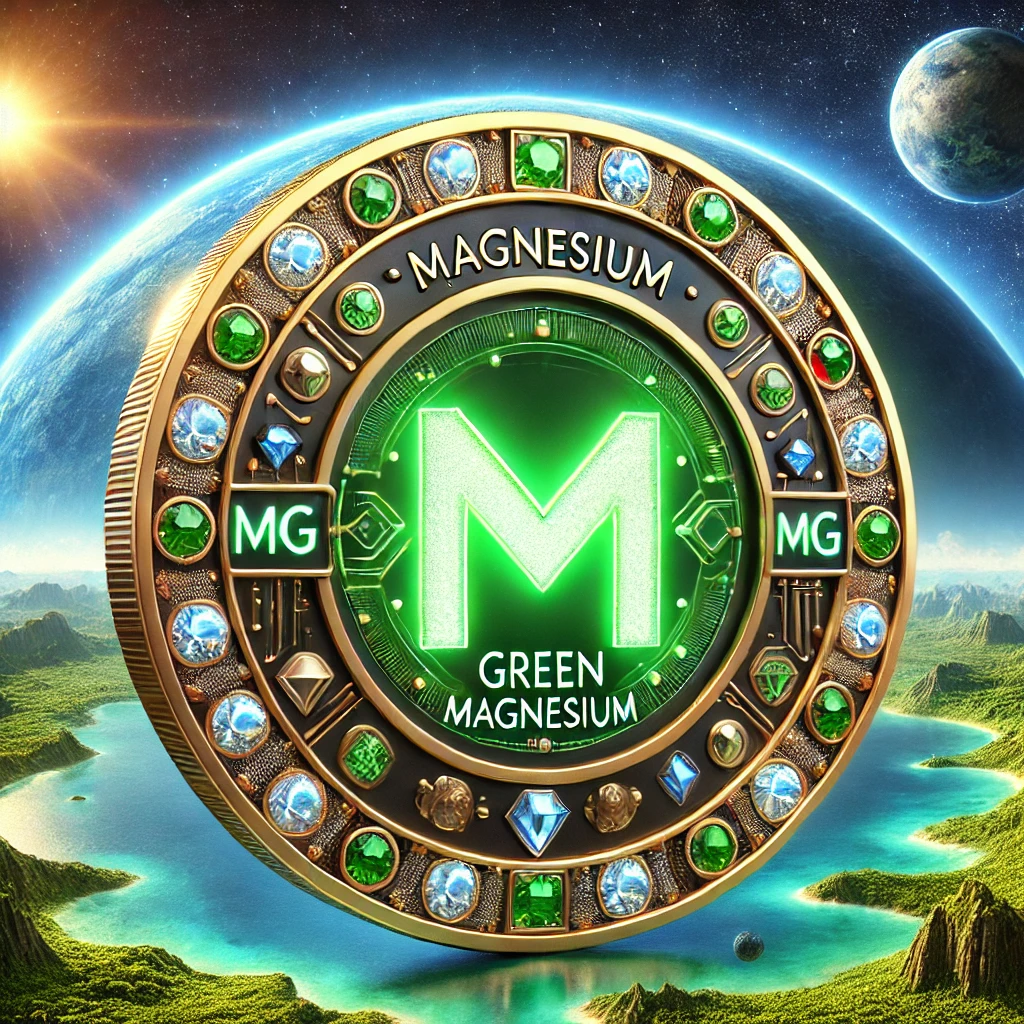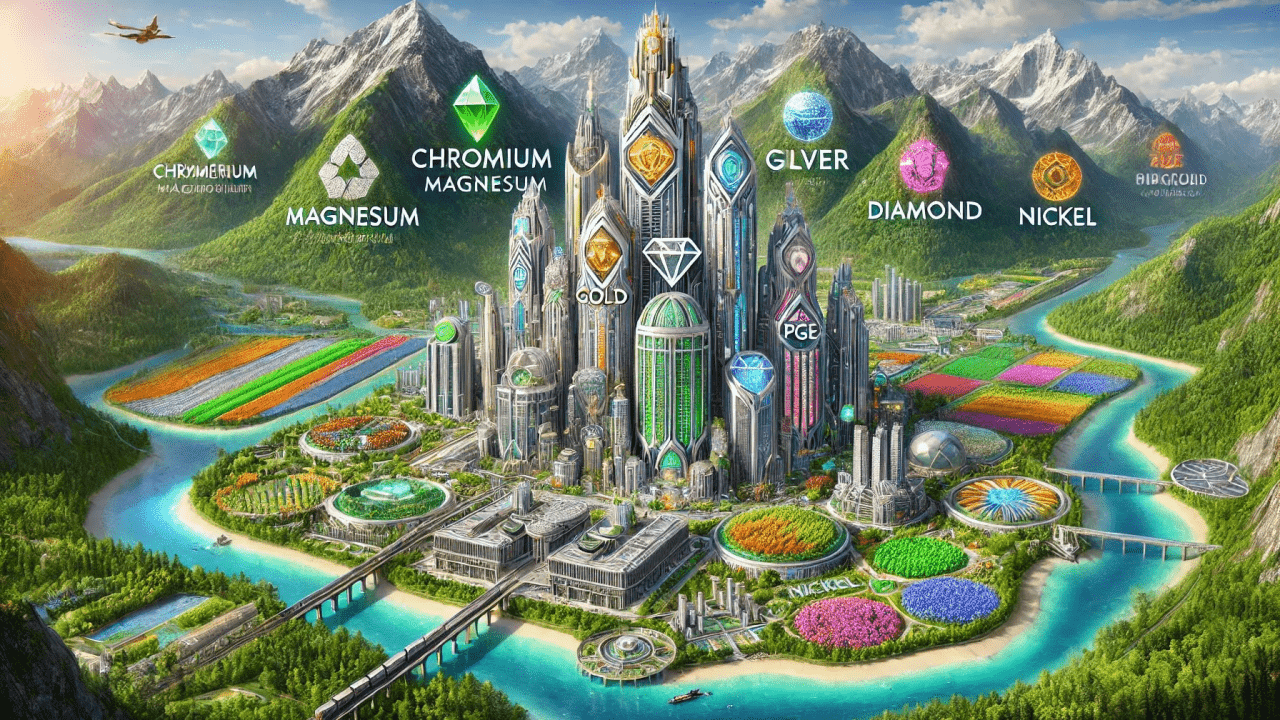
Revelations from the World’s Purest Air: Nature’s Weapon in the Battle Against Climate Change
In an epoch defined by mounting environmental degradation, humanity finds itself standing at a precipice, facing the looming threat of climate change. The signs are all too apparent: the insidious rise of global temperatures, increasingly frequent and devastating natural disasters, the relentless acidification of our oceans, and the inexorable pollution of both air and water.
These catastrophic changes are the direct result of human activity, deforestation, industrialization, and the unchecked release of carbon dioxide into the atmosphere. Yet, amid this darkness, a glimmer of hope emerges, not from human invention, but from nature’s own arsenal, waiting to be unlocked. Could we harness the Earth’s innate resources to reverse the damage we have inflicted? Could the very minerals and processes we once overlooked hold the key to our survival?
This is the question that Sahit Muja, CEO of Albanian Minerals, poses as he advocates for a natural, sustainable solution to the existential threat of climate change. With a career spanning over three decades, Muja has sought to understand and replicate nature’s most ingenious mechanisms, recognizing that humanity’s greatest hope lies in working in harmony with the environment, rather than against it. As he eloquently asserts, “Mother Nature has endowed us with an abundant and diverse array of tools, materials, and models, each one intricately designed to address the world’s most pressing challenges. It is through studying and emulating nature that we may find the answers we seek.”
At the forefront of Muja’s research lies a remarkable discovery, one that could redefine our approach to mitigating climate change: the mineral olivine. Often regarded as a humble silicate, olivine is far from ordinary. When harnessed correctly, it possesses the ability to perform one of the most critical tasks in the battle against climate change, sequestering carbon dioxide from the atmosphere.
In his pursuit of solutions, Muja directs our attention to a unique locale, far from the world’s industrial centers, where the purest air on Earth can be found, Guam. Nestled within the vast expanse of the Pacific Ocean, this idyllic island in the Mariana Archipelago stands as a testament to ecological purity. It is here, in this tranquil haven, where the magic of nature’s mineral cycle unfolds, offering a blueprint for combating climate change on a global scale.
Guam, with its 212 square miles of pristine wilderness, is renowned not only for its serene beauty but for its exceptional air quality, which has earned it the distinction of having the cleanest air on Earth. The island’s volcanic soil, rich in olivine, undergoes a unique weathering process, accelerated by the region’s abundant rainfall and tropical climate. This process, known as enhanced weathering, involves the natural breakdown of silicate minerals like olivine, which in turn absorbs carbon dioxide from the atmosphere and converts it into stable carbonates, effectively locking away harmful greenhouse gases in the earth.
Muja’s research on Guam has revealed that this process can be scaled up to address some of the most urgent environmental challenges facing humanity today. By spreading crushed olivine across vast expanses of land and water, the weathering process can be enhanced, accelerating the removal of CO2 from the atmosphere while simultaneously improving soil health and promoting biodiversity. As olivine dissolves, it releases magnesium ions into the environment, which catalyze the conversion of CO2 into carbonates, transforming a dangerous pollutant into a stable, non-toxic mineral that can remain sequestered for millennia.
The benefits of olivine extend beyond its carbon capture potential. In marine environments, olivine has been shown to reduce ocean acidity, a growing concern as rising CO2 levels threaten marine ecosystems. By providing essential nutrients to marine life, olivine fosters the growth of coral reefs, promotes the flourishing of marine vegetation, and supports biodiversity in ways that could offset some of the damage caused by acidification. In fact, Muja’s teams have made significant strides in utilizing olivine to enhance the health of our oceans, reducing acidification and promoting the growth of marine ecosystems, while simultaneously sequestering vast amounts of CO2.
Furthermore, Muja’s vision extends to a revolutionary method for addressing soil degradation and deforestation. In collaboration with scientists and environmentalists, Albanian Minerals has pioneered a technique of using magnesium-rich olivine to rehabilitate degraded soils, transforming them into fertile grounds capable of supporting sustainable agriculture. This process not only mitigates the adverse effects of climate change but also offers an eco-friendly alternative to chemical fertilizers, which have long been a source of environmental harm.
At the heart of Muja’s work lies a deep belief in the power of collaboration. As the founder and CEO of Albanian Minerals, Green Minerals, and Global Mining, he oversees the world’s largest reserves of olivine, estimated to be worth over $100 billion USD. Under his leadership, these companies have committed themselves to scaling the use of olivine for CO2 sequestration, ocean acidification mitigation, and soil restoration, all while upholding the principles of sustainability and environmental stewardship. Muja’s pioneering work, in partnership with scientific and academic communities, aims to integrate olivine-based technologies into the green energy transition, creating a closed-loop system that benefits both the environment and the global economy.
The potential of olivine to transform our approach to climate change is immense. By harnessing the natural power of this magnesium silicate, we can not only sequester vast quantities of carbon dioxide but also restore ecosystems, reduce ocean acidity, and regenerate degraded lands. It represents a paradigm shift in how we think about climate solutions, moving away from technological fixes toward natural, sustainable processes that work in harmony with the Earth’s systems.
Moreover, the deployment of olivine in various applications, such as organic fertilizers, green energy production, and the extraction of valuable metals like nickel, cobalt, and manganese, further solidifies its status as a multifaceted tool in the green transition. Through the development of cutting-edge technologies that employ green energy to separate these metals, Muja’s team is ensuring that the extraction of these resources is done in a manner that is both environmentally responsible and economically viable.
As the world grapples with the challenges of climate change, the need for innovative, nature-based solutions has never been more urgent. Olivine, with its ability to capture and store carbon, enhance soil health, and restore marine ecosystems, represents a beacon of hope in this critical fight. Through the efforts of visionary leaders like Sahit Muja and the groundbreaking work of Albanian Minerals, we may one day see a future where humanity’s relationship with nature is not one of exploitation, but of symbiosis, a future in which we draw upon the Earth’s natural processes to heal the wounds we have inflicted upon it.
In this pursuit, nature’s most humble treasures, minerals like olivine, could hold the key to securing a sustainable future for generations to come. As we face the overwhelming challenges of climate change, it is clear that the solutions we seek may be lying not in the latest technological breakthrough, but in the age-old wisdom of nature itself.






























